Gender Project - Timor Leste
Summary
Timeframe
2010 to date
Partners
Cooperativa Café Timor, Timor-Leste
Location
Ermera Municipality, Atsabe and Letefoho, Holarua in the District of Manufahi Timor-Leste
Aims
- Improve sexual and reproductive health and gender equality by using a community and peer education model to disseminate information to men's groups at remote village level.
Progress
The Men's Health and Gender Program aims to improve sexual and reproductive health and gender equality by using a community and peer education model to disseminate information to men's groups at remote village level. It is currently being adapted for use by women's and mixed groups.
From 2010 Cooperativa Café Timor (CCT) has partnered with Family Planning NSW to develop and implement the first men's health program for Timor-Leste. Traditionally men in Timor-Leste make the majority of family decisions and often control their family's access to health services but have rarely been involved in health education programs which are generally regarded as "women's business".
A pilot program introduced men's health concepts across a number of subdistricts in Ermera Municipality where CCT have well established health facilites. An external evaluation took place at the end of Phase One in 2012 which identified the program's effectiveness in achieving attitudinal and behavioural changes within rural men to the benefit of themselves, their partners and families. The evaluation resulted in a review and revision of the facilitator's guide Working with Men, a Men's health manual for Timor-Leste.
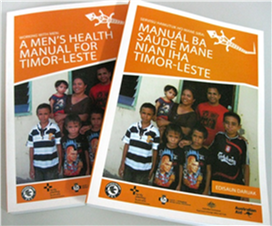
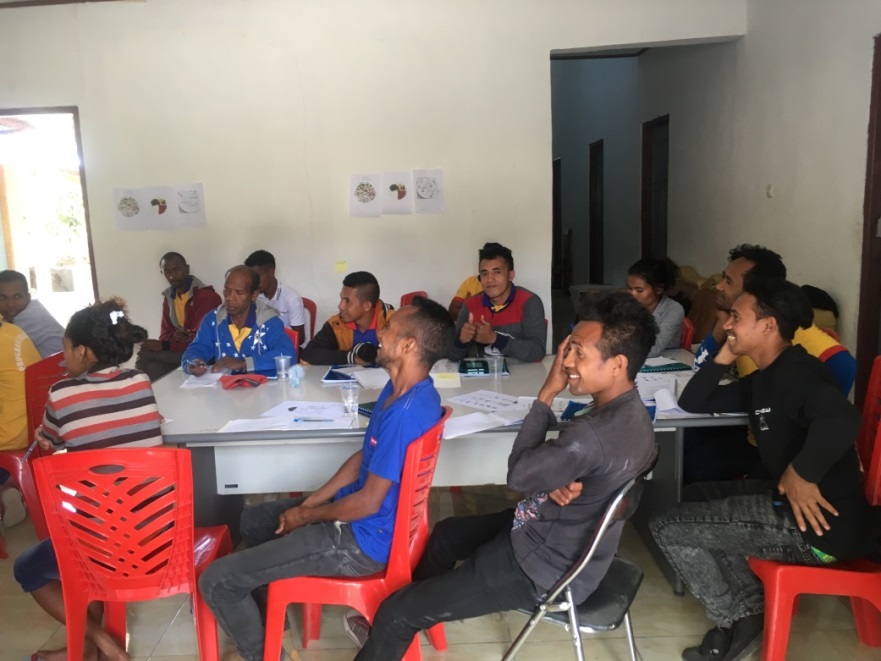
In 2013 (Phase Two) the program expanded to two new subdistricts, Atsabe and Letefoho. An evaluation again took place in 2016 which made key recommendations including strengthening the gender module as a core component of the program and expanding the program to women. The 2016 evaluation found the Men's Health Project to be relevant at a National and local level, that it aligned with national policies and the Sustainable Development Goals and was supported by the communities.
Over the next 18 months, 3 new modules were added to the existing 7 modules: Gender and Men as Partners in Change, People with Disability and Social Inclusion and Working Together to Improve Nutrition.
To date the program has reached 19,634 people the majority of whom have been men, a fact which is changing as men and women start participating in the education groups together.
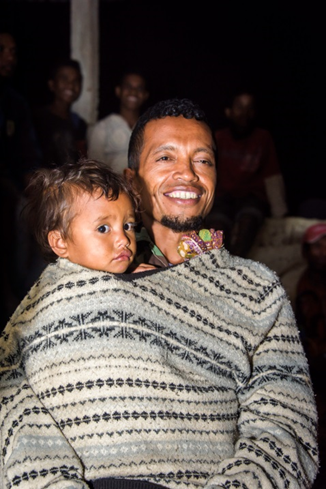
In 2016-19 the Men's Health Program has joined with the innovative multi-agency Hamutuk Program in Holarua in the District of Manufahi, this program is driven by the Australian Government's Innovation Xchange program and seeks to pilot a multi sector approach to combat malnutrition in Timor-Leste. CCT and Family Planning NSW work across the 13 aldeias of the suco and have trained 14 Peer Educators who deliver 4 sessions each a month in their communities.
The program has been adopted as a core program of CCT. Its success can be attributed to:
- the use of peer education model which has enabled information to be delivered to people in remote rural regions
- a human rights and gender equity approach which are the corner stones of the program
- CCT's strong operational model of community engagement, training, support and monitoring.
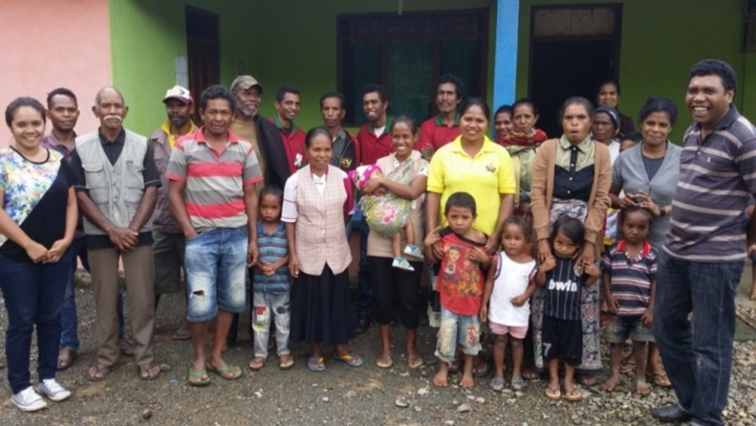
Peer educators and community members outside the Xefe's office in Raipusa aldeia in the suco of Haufu. This suco has 12 aldias covered by four peer educators (pictured in red shirts). The community has no power, potable water or transport and the closest health centre is 8 kms away.
Case Study: Men's Health and Gender Awareness Program in remote communities of Timor Leste
Alfredo Gomez was selected by his community to be a volunteer Peer Educator for the Men's Health and Gender Awareness Program that we run in Timor Leste.
He was chosen because of his commitment to improving community health following the death of his wife in child birth.
Alfredo talks openly about his loss and relates the story of how his wife went into early labour at seven months without having any antenatal care.
He didn't hide his tears speaking about the great distance they walked to get help. At the time a UN helicopter was in the vicinity and took her to a hospital in Dili, where sadly she died.
The couple had one other small child.
Alfredo is now a committed advocate for antenatal care and health centre delivery. He stated that "the Peer Education program has given me the opportunity to educate men and the community on health issues especially on pregnancy and the danger signs so that what happened to my family doesn't happen to others".
He has completed all seven modules of the program and is now repeating them.
Four times a month Maun Alfredo walks to each aldeia to run a program. He runs six men's groups in four aldeias. Both men and women attend with between ten and twenty participants in each group.
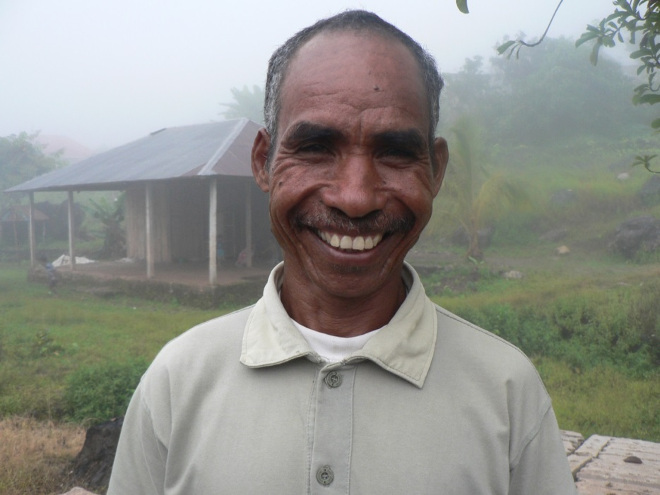
The community he lives in is small, with a population of just 2,000 people, but they are spread across a remote, mountainous terrain where not one of the families has a vehicle.
People must walk to the local health centre, a journey which can take many hours. Maun Alfredo is dedicated to delivering the information in the hope that people become aware of the precautions that they themselves can take to help prevent poor health and disharmony and especially the unnecessary death or injury of another mother and child.
He has since remarried and he and his new wife have another baby.



